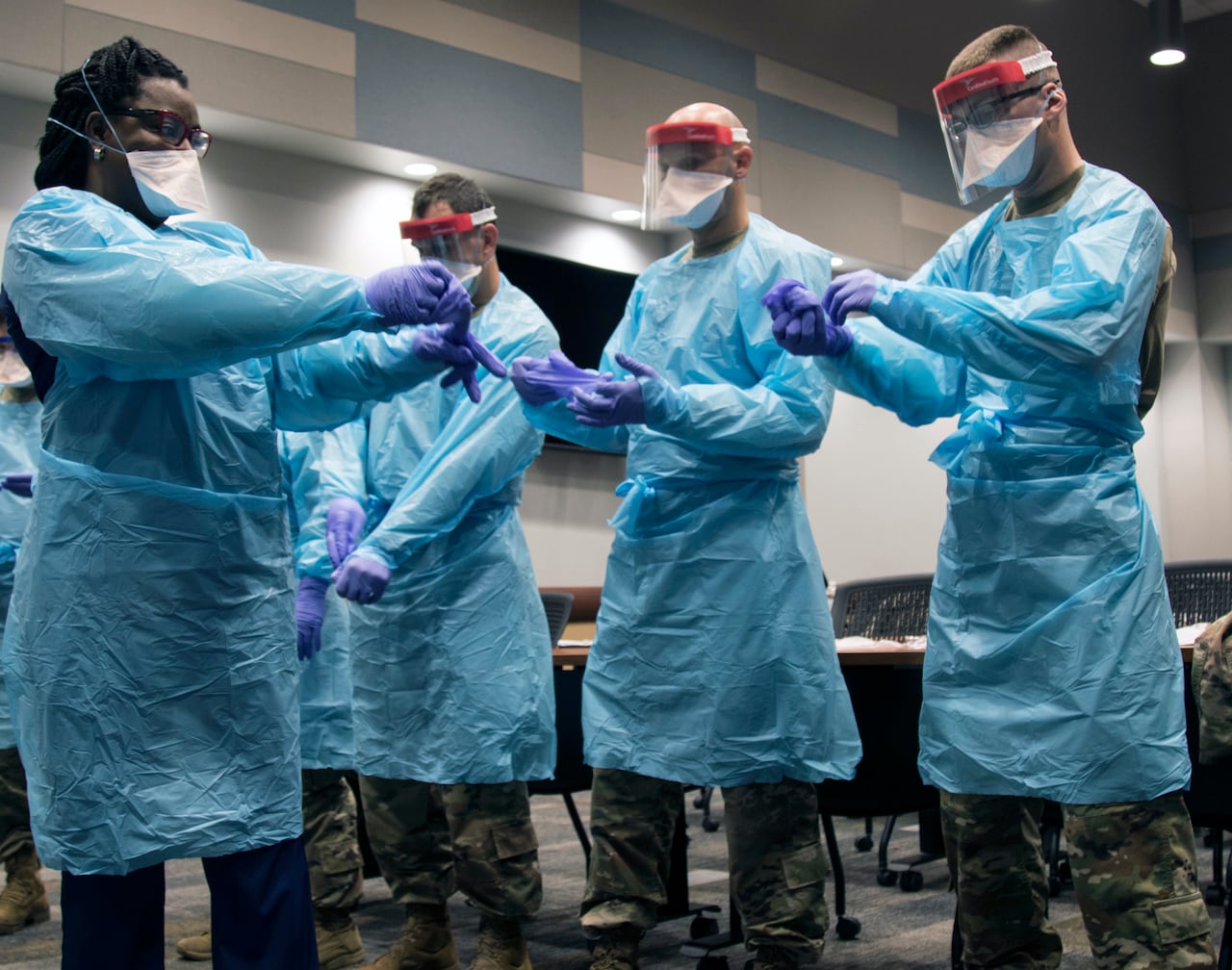The National Guard is expecting a rapid increase in unit activations over the next few weeks, leaders said at the Pentagon Thursday, filling roles like coronavirus testing and potentially law enforcement.
Governors in 27 states have already activated elements of their National Guard forces, but everywhere in the country, state leaders have declared states of emergency, said Air Force Gen. Joseph L. Lengyel, chief of the National Guard Bureau.
“With COVID-19, it’s like we have 54 separate hurricanes in every state, territory and the District of Columbia,” Lengyel said. “Unlike a hurricane, we don’t know when this will dissipate or head out to sea. But a historic event requires a historic response.”
More than 2,000 Guard personnel have been activated in total so far.
“We anticipate that number going up relatively quickly, in fact, doubling by this weekend," Lengyel added. “I’m expecting tens of thousands to be used inside the states as this grows. ... This could quickly blossom in the next couple weeks."
If the president wanted to, he could mobilize the National Guard under a Title 10 authorities, though Guard leaders aren’t advising that move.
“That would not make sense in this situation,” said Lengyel, adding that it’s better to leave Guard units under the command and control of each governor. “Every state has a different way to deal with disasters. ... If you were to federalize them, you’d lose some of those abilities."
One capability that would be lost if the the Guard is federalized is their capacity to operate as law enforcement to assist state officials, Lengyel said, as that would violate the Posse Comitatus Act. That law prevents the Department of Defense from interfering in domestic policing.
In many disasters and responses, when there’s overwhelming pressure on local and state police, Guard personnel are sometimes called upon to assist.
“I don’t see any demand signal that’s demanding we use the national guard in that scenario — but governors could,” said Lengyel, which is one of the reasons he advised against federalizing the Guard.

Federalizing the National Guard is more advisable during wartime, when military leaders would need to grow their forces rapidly to deal with outstanding external threats, according to Lengyel.
“That is the World War II scenario,” he explained. “I think you can get everything you need from the National Guard more efficiently and more effectively if you leave them in a state status.”
There are also no plans to bring Guard units currently deployed overseas back to the United States, leadership said. Six Guardsman have tested positive for coronavirus, but none of those have been overseas.
So far, Guard units have been manning drive-through testing stations, handing out food and clearing out facilities to stand up makeshift hospitals. Tennessee Air National Guard C-17s delivered 500,000 swabs to add to test kits in Memphis, for instance.
Guard units can be trained to administer tests or support medical professionals who administer the tests. Colorado, New York and Rhode Island have already started training Guard personnel for that role.
Some Guard personnel are medical professionals, and while they’re able to be activated in those roles, the Guard doesn’t have field hospitals to stand up. That would be more of an Army Reserve capability, Lengyel said. However, Guardsmen can help clear out facilities and stage them to act as hospitals during the crisis.
Kyle Rempfer was an editor and reporter who has covered combat operations, criminal cases, foreign military assistance and training accidents. Before entering journalism, Kyle served in U.S. Air Force Special Tactics and deployed in 2014 to Paktika Province, Afghanistan, and Baghdad, Iraq.





